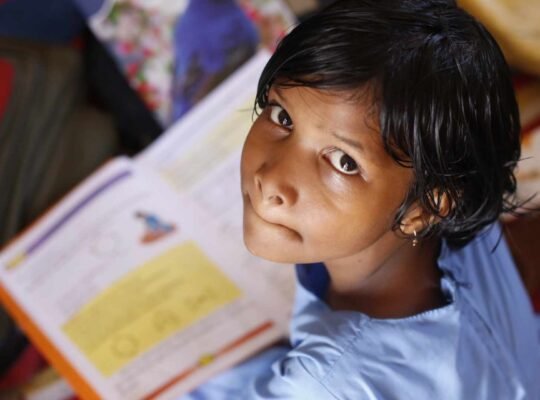Introduction: The Need for Progress on Gender Equality in Pakistan
Pakistan has made strides in women’s empowerment in recent years, but there is still a long way to go to achieve gender equality. One promising avenue for progress is the theme of this year’s International Women’s Day which is “DigitALL: Innovation and technology for gender equality.”
Investing in Digital Skills Training for Women in Pakistan
Pakistan has a large population of women who are underrepresented in the workforce, particularly in STEM fields. One way to address this is to invest in education and training in digital skills. By providing women with access to technology and training in digital skills, Pakistan can help them to participate more fully in the digital economy, which is rapidly growing around the world.
Using Technology to Provide Information and Services to Women
Another way that technology can promote gender equality is by providing women with access to information and services. This is particularly important in rural areas, where women may have limited access to healthcare and other services. By using technology to provide information and services, Pakistan can help to bridge this gap and improve the health and well-being of women in these areas.
Addressing Gender-Based Violence with Digital Technology
Digital technology can also be used to address gender-based violence, which is a serious problem in Pakistan. By providing women with access to resources and support through digital channels, Pakistan can help to prevent and respond to gender-based violence.
Steps to Address the Digital Gender Divide in Pakistan
However, there are also challenges to using technology to promote gender equality in Pakistan. One of the biggest challenges is the digital gender divide, which refers to the gap between men and women in terms of access to and use of digital technology. Women in Pakistan are less likely to have access to digital technology, and even when they do, they may face barriers to using it, such as cultural norms that discourage women from using technology.
Changing Cultural Norms to Empower Women in the Tech Industry
To address these challenges, Pakistan can take a number of steps. One is to invest in programs that provide women with access to digital technology and training in digital skills. Another is to promote gender-sensitive policies and practices in the digital sector, such as promoting the inclusion of women in decision-making roles in the tech industry.
Advancing Gender Equality in Pakistan through Digital Innovation and Technology
Finally, Pakistan can work to change cultural norms and attitudes that discourage women from using technology. This can be done through public education campaigns and by promoting positive role models for women in the tech industry.
In Pakistan, organizations such as Off The School (OTS) are working to provide girls with access to quality education, including digital skills training.
In conclusion, the theme of this year’s International Women’s Day “DigitALL: Innovation and technology for gender equality,” provides a promising avenue for progress in Pakistan. By investing in digital skills training, promoting access to digital technology, and addressing the digital gender divide, Pakistan can promote gender equality and empower women and girls to participate more fully in the digital economy.

Meet Omama Ansari, the innovative head of the Edtech program at Off The School (OTS). He brings a wealth of technical expertise to his role with a Bachelor of Engineering degree in Computer Information Systems from NED University.






